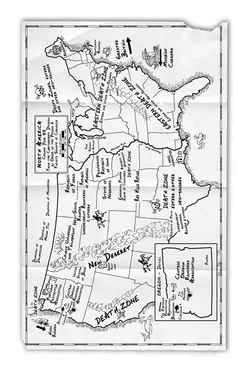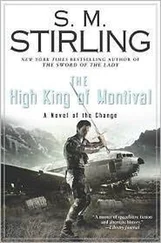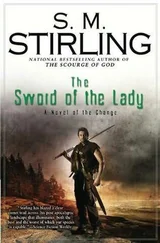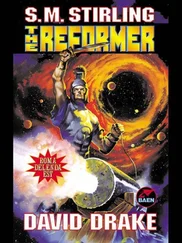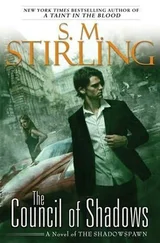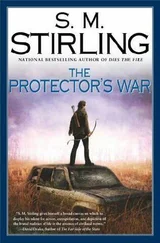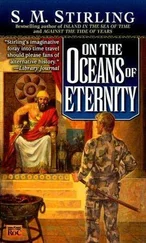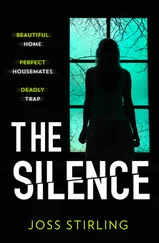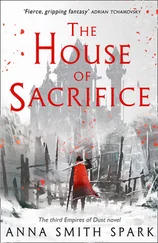S. Stirling - The Given Sacrifice
Здесь есть возможность читать онлайн «S. Stirling - The Given Sacrifice» весь текст электронной книги совершенно бесплатно (целиком полную версию без сокращений). В некоторых случаях можно слушать аудио, скачать через торрент в формате fb2 и присутствует краткое содержание. Год выпуска: 2013, Издательство: Penguin Group, USA, Жанр: sf_postapocalyptic, на английском языке. Описание произведения, (предисловие) а так же отзывы посетителей доступны на портале библиотеки ЛибКат.
- Название:The Given Sacrifice
- Автор:
- Издательство:Penguin Group, USA
- Жанр:
- Год:2013
- ISBN:нет данных
- Рейтинг книги:3 / 5. Голосов: 1
-
Избранное:Добавить в избранное
- Отзывы:
-
Ваша оценка:
- 60
- 1
- 2
- 3
- 4
- 5
The Given Sacrifice: краткое содержание, описание и аннотация
Предлагаем к чтению аннотацию, описание, краткое содержание или предисловие (зависит от того, что написал сам автор книги «The Given Sacrifice»). Если вы не нашли необходимую информацию о книге — напишите в комментариях, мы постараемся отыскать её.
The Given Sacrifice — читать онлайн бесплатно полную книгу (весь текст) целиком
Ниже представлен текст книги, разбитый по страницам. Система сохранения места последней прочитанной страницы, позволяет с удобством читать онлайн бесплатно книгу «The Given Sacrifice», без необходимости каждый раз заново искать на чём Вы остановились. Поставьте закладку, и сможете в любой момент перейти на страницу, на которой закончили чтение.
Интервал:
Закладка:
Now in summertime most of the Morrowlanders were probably spread out through this vast stretch of wilderness, laying in the food and other goods they’d need in the long deep-snow winters. That made what they’d done here all the more impressive, not least the inconspicuous but substantial storage cellars and icehouses, recognizable mainly by the doors set into what looked like low mounds.
The buildings scattered amid raised-bed gardens and pruned bushes and corrals and many trees were deep-notched logs on fieldstone, carefully set into the south-facing sides of the low hills. The largest reared like a whale among minnows, and from the color of the carved and varnished wood it was the newest, but like the others it had a steep-pitched roof covered in sod. That gave them an intensely green look, like great plants, colored with flowers that must be carefully cultivated despite their wild exuberance.
“Looks just a wee bit homelike,” Talyn said in fascination. “But more spread out than one of our Duns. No wall. And no grain fields and not much in the way of herds, either, just these little bits of garden. They must live mostly from the hunt and what they gather.”
The carving was less ornate and less colorful than, say, Dun Juniper, though there was plenty of it, mostly themed on animals and plants, and including inlays of different woods and colored stones. There were totem-pole-like erections in front of a collection of smaller but still big buildings surrounding the main one.
“What are those?” Ingolf asked.
“Those are the Houses of the Troops, and each Patrol has its Den,” George Tracker said; they seemed to use their epithets as surnames, more or less. “They stand around the House of the Eagle.”
Then, taking over the role of tour guide for a moment, he went on:
“That is the Hall of Boys, and that the Hall of Girls, where they meet for special ceremonies. There are the smithies, and the woodworking shop, and the library. That log flume brings springwater for drinking and washing and to turn wheels; it was finished the year I became a Bearer of the Eagle. That long building is-”
Nice composting toilets, too , Ingolf thought; that had impressed him most of all . Same system we used back in Richland.
The first Bossman of the Free Republic of Richland had been a gadget enthusiast, always pulling a new notion out of his books or someone’s memory or from some traveller. He had sent artisans around to show people how to build the composting thunderboxes a couple of years after the Change, and met warm agreement among a people no longer living in fear of starvation and ready for something better than smelly, dangerous makeshifts. The Bossman had been a self-important fussbudget and easy to mock-Ingolf and some friends had gotten a memorable whaling with a hickory-switch from Ingolf’s father the Sheriff for carving a roadside stump into a caricature of him just before a visit to Readstown-but he’d had some good ideas. And he’d been a much harder man than you’d think to look at him or listen to him burbling about how to rig a side-delivery hay rake or a silage chopper, though he’d used others to do the bone-breaking and head-knocking parts of the job.
Ingolf wouldn’t have expected something so sophisticated in a place so rustic as this, though. The settlement smelled clean, too, with less stink and flies than nearly any warm-season farming community. To be sure, they didn’t have much livestock, which were inescapably messy no matter how careful you were. The water and forest were the strongest odors; there was wood smoke, of course, and cooking, and the scorched metal, glue, leather and sawdust of crafts. His nose didn’t detect the unmistakable reek of a tannery, either, which meant they must have put it elsewhere.
The people were out to see the newcomers when they emerged from getting settled, outsiders obviously not being something that were seen very often here. They were all dressed pretty much like the three representatives of the Council, though less elaborately. Apparently everyone wore knee-length pants in warm weather, roughly the way Mackenzies all wore kilts; many of the young children had nothing on but the shorts. There was a lot less jostling, pointing or exclaiming than he’d have expected from backwoods villagers-probably less than there would have been in Readstown, and certainly than in some other parts of Richland he could name. The hunting dogs that were fairly numerous were well-mannered too, hardly any barking and most staying close to their people even while their noses followed the stiff-legged strut Artan and Flan put on in a strange pack’s territory.
Speaking of children and older people. .
“Notice something about these folks?” he said to Mary.
“Lots,” she said. “What in particular?”
“There are plenty of kids, but the adults are all my age or a bit older, and the Changelings, the born Changelings-”
Strictly speaking, Changelings were people born since the Change, of course. More loosely the term included people like Ingolf who’d been young children at the time; he’d been six going on seven. If you used both senses together Changelings were a majority of the population now nearly everywhere, or would be soon. Here they were apparently everybody.
“-just coming full-grown, only a few with babies of their own.”
She blinked and he could sense her focusing, counting and averaging-numbers were something you had to be able to do well on reconnaissance.
“You’re right,” she said. “Like a clump, and their kids, and only a few people in between. It’s a bit odd. And you don’t expect a lot of really old people but there aren’t any. Nobody even as old as Uncle John and Uncle Alleyne, who were about my age at the Change. I’ve never seen anything exactly like it, and we’ve been from the Atlantic to the Pacific and back. Odd.”
“No it ain’t,” he said. “Scouts, before the Change that is, they were kids and youngsters.”
In Readstown these days you were a baby up until you could get around, use the outhouse on your own and do simple chores, then a kid until puberty, and then a youngster until you grew enough and learned enough to do the things a grown man or woman did. After that you sort of slid into being a full adult over the next few years, capping it off when you got your own house and a job or farm or workshop or whatever and started your own family.
Most places were roughly the same, though he was vaguely aware that they’d seen things differently before the Change when being a kid had lasted a lot longer. That Scouting business had been part of the way they stretched things out back then. It must have been irritating, since as he remembered it he’d been eager to grow up.
“My dad was a. . what did they call it. . Scoutmaster. And my older brother was a Scout, and they talked about it a little now and then. And they had some books about it that were real useful, practical stuff. Nobody kept it up after the Change where I come from, though. Too busy.”
“No need, either, I imagine,” Mary said thoughtfully.
“Yah. You learn that stuff from your folks or uncles or whatever, like farming or hunting or smithing. Or at school.”
From their sixth year to around twelve kids in Richland went to school, at least between fall and spring, which was when they could best be spared from chores. Enough to get their letters and how to do sums and a bit of this and that; children of Farmers and Sheriffs usually stuck with it a little longer so they could keep account books and deal with the outside world, especially merchants and tax-collectors. That was about the way most civilized, advanced places worked, with arrangements running downhill from that to wildmen bands in the death zones who’d forgotten that there ever had been such a thing as writing. Modern life just didn’t demand much book learning for most.
Читать дальшеИнтервал:
Закладка:
Похожие книги на «The Given Sacrifice»
Представляем Вашему вниманию похожие книги на «The Given Sacrifice» списком для выбора. Мы отобрали схожую по названию и смыслу литературу в надежде предоставить читателям больше вариантов отыскать новые, интересные, ещё непрочитанные произведения.
Обсуждение, отзывы о книге «The Given Sacrifice» и просто собственные мнения читателей. Оставьте ваши комментарии, напишите, что Вы думаете о произведении, его смысле или главных героях. Укажите что конкретно понравилось, а что нет, и почему Вы так считаете.
